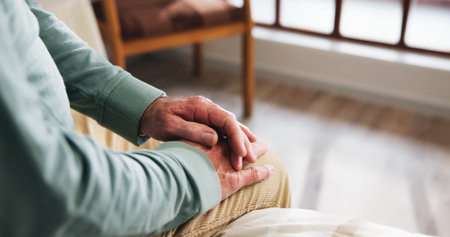1. Understanding Parkinson’s in the Indian Context
Parkinson’s disease is a progressive neurological disorder that touches many families across India, yet it is often misunderstood or overlooked in our communities. In the Indian context, the journey with Parkinson’s can be uniquely challenging due to social, cultural, and economic factors. Many people may mistake its symptoms—such as tremors, stiffness, or slow movements—for normal signs of ageing, leading to late diagnosis and inadequate support. Additionally, misconceptions sometimes lead to social stigma, making it harder for patients and their families to seek help openly. The daily life of someone with Parkinson’s in India often involves navigating crowded public spaces, managing medication schedules amidst busy family routines, and overcoming hesitations to discuss mental health. By understanding these challenges within our local setting, we can begin to foster compassion and encourage early intervention for those living with Parkinson’s. This awareness is the first step towards building a supportive environment where motivation and mental well-being are nurtured alongside physical care.
The Role of Motivation in Mental Health
Motivation plays a crucial role in the mental health and daily lives of people living with Parkinson’s disease. In India, the spirit of “jugaad” (finding creative solutions) and strong family support are deeply woven into our culture. These values offer unique encouragement for Parkinson’s patients to face each day with hope and resilience.
For many, daily motivation comes from small victories—getting out of bed, performing yoga stretches, or simply sharing laughter with loved ones. Indian families often gather strength from spiritual practices like meditation, chanting, or reading positive affirmations from sacred texts. Such habits help boost mental well-being by nurturing positivity and reducing stress.
| Indian Wellness Practice | Mental Health Benefit |
|---|---|
| Morning Prayers (Prarthana) | Instills hope and calmness for the day ahead |
| Family Meal Times | Encourages bonding, support, and joyful conversation |
| Yoga & Meditation | Reduces anxiety, enhances mood, and builds focus |
| Community Support (Seva/Volunteering) | Boosts self-worth through helping others |
When motivation dips, remembering Indian proverbs like “Sabr ka phal meetha hota hai” (Patience bears sweet fruit) can gently encourage perseverance. By celebrating every small step forward and drawing inspiration from Indian traditions, Parkinson’s patients can nurture their mental well-being and experience a more hopeful outlook every day.

3. Indian Wellness Tips for Uplifting Spirits
Drawing from India’s rich heritage of holistic living, there are many accessible wellness habits that can help Parkinson’s patients boost their mood and motivation. These practices don’t require special equipment or extensive training—just an open heart and a willingness to try. Let us explore some traditional Indian approaches, cherished across generations, that you can easily weave into your daily routine.
Yoga: Gentle Movement for the Mind and Body
Yoga is more than just physical exercise—it is a practice of uniting the mind, body, and spirit. For those with Parkinson’s, gentle yoga asanas like Tadasana (Mountain Pose) or Vrikshasana (Tree Pose) can improve balance and flexibility, while also calming the mind. Practising yoga in the morning or evening for even ten minutes can uplift your spirits and help you start the day on a positive note.
Meditation: Finding Calm Within
Meditation has deep roots in Indian culture, offering a way to find inner peace amidst life’s challenges. Simple mindfulness meditation or chanting “Om” can bring a sense of calm and clarity. Try sitting quietly for five minutes every day, focusing on your breath or repeating a comforting mantra. Over time, this habit can reduce stress and enhance emotional resilience.
The Power of Pranayama (Breathwork)
Pranayama—or yogic breathing—is a traditional technique used to balance energy and emotions. Practices like Anulom Vilom (alternate nostril breathing) or Bhramari (bee breath) are gentle yet effective ways to refresh the mind and ease anxiety. Integrating pranayama into your routine can help you feel more centred and motivated each day.
Mindful Rituals: Everyday Acts with Purpose
Indian households often cherish small rituals—like lighting a diya (lamp) at dusk or offering prayers before meals. Engaging in such mindful acts brings structure and joy to daily life. For Parkinson’s patients, these rituals serve as anchors, fostering a sense of purpose and belonging. Choose one simple ritual that resonates with you, and let it become a source of comfort and encouragement.
Embracing these time-honoured Indian wellness tips may not cure all challenges, but they gently support mental health by nurturing hope, connection, and positivity—one mindful moment at a time.
4. Family and Community Support Systems
In India, the strength of family bonds and tight-knit community networks plays a vital role in supporting those living with Parkinsons disease. The sense of togetherness and mutual care found in Indian households provides both emotional comfort and practical assistance for patients. Recognising this unique cultural asset can greatly enhance motivation and mental wellbeing among Parkinson’s patients.
The Power of Family Bonds
Indian families often function as close units, where multiple generations live under one roof or nearby. For Parkinson’s patients, this familial structure offers daily encouragement, shared responsibilities, and a strong emotional safety net. Simple actions—like sharing meals, engaging in light household tasks together, or participating in evening prayers—can help foster connection and reduce feelings of isolation.
Community Networks: A Source of Strength
Beyond the family, local communities such as neighbourhood groups, religious gatherings, or self-help groups provide additional support for both patients and caregivers. These networks not only offer companionship but also serve as platforms for exchanging wellness tips, sharing experiences, and promoting collective motivation through group activities.
Practical Ideas for Inclusive Care & Emotional Support
| Support System | Practical Suggestions |
|---|---|
| Family Involvement | Create a weekly activity calendar; rotate simple chores to promote participation; share inspirational stories during chai time. |
| Community Engagement | Organise group yoga or bhajan sessions; arrange regular health talks by local doctors; form WhatsApp groups for sharing motivational messages. |
| Cultural & Religious Gatherings | Encourage attendance at temple festivals or satsangs; incorporate traditional music and dance therapy into routines. |
| Neighbourhood Support | Set up buddy systems for walks; coordinate carpooling to doctor appointments; celebrate small milestones together. |
A Gentle Reminder for Families & Communities
Caring for someone with Parkinson’s is a shared journey. By embracing the spirit of Indian hospitality and interconnectedness, families and communities can make daily life richer, more inclusive, and filled with hope for their loved ones. Together, these support systems empower patients to stay motivated and mentally resilient on their wellness path.
5. Balancing Ayurveda with Modern Therapy
Living with Parkinsons disease in India often inspires families to explore both modern medical treatments and time-honoured wellness traditions. Ayurveda, a holistic healing system deeply rooted in Indian culture, offers natural approaches that may help support mental and physical wellbeing. While medications and therapies prescribed by your neurologist remain essential for managing Parkinson’s, many Indians find comfort and additional motivation by gently incorporating Ayurvedic principles into their daily lives.
The Role of Ayurveda in Everyday Wellness
Ayurveda focuses on balancing the body, mind, and spirit through diet, herbal remedies, gentle exercise like yoga, and mindful routines. For example, enjoying warm herbal teas such as Tulsi or Ashwagandha may soothe stress, while light Abhyanga (self-massage) with medicated oils can promote relaxation and improve circulation. Many Indian families also cherish simple practices like eating sattvic foods—fresh fruits, vegetables, and grains—to uplift mood and support digestion.
Working Together: Safety First
It is important to remember that Ayurveda does not replace modern medicine but can complement it when used wisely. Always consult with your healthcare professionals before adding any new herbs or routines to your regimen. Some herbal remedies may interact with Parkinson’s medications or cause unexpected side effects. A collaborative approach—where your doctor and an experienced Ayurvedic practitioner work together—ensures you receive safe, personalized care.
Cultural Wisdom for Motivation
Blending Ayurvedic habits with medical treatment empowers many Indian families to feel more involved in their loved one’s journey. This balanced approach nurtures hope and motivation, while respecting both scientific advances and cherished cultural wisdom. With support from your medical team and gentle encouragement from traditional practices, living well with Parkinson’s becomes a shared goal—rooted in both heritage and health.
6. Everyday Motivation: Real Stories from India
Living with Parkinson’s disease in India can be challenging, but many patients draw strength from their families, communities, and cultural practices. Let us explore a few inspiring stories that shine a light on the power of motivation and positive thinking in Indian daily life.
Finding Strength in Family Bonds
Mr. Sharma from Delhi was diagnosed with Parkinson’s at 62. At first, he felt overwhelmed by the diagnosis. However, his family played a crucial role in his journey. His wife encouraged him to join her every morning for gentle yoga and pranayama sessions. Their shared routine brought them closer and helped Mr. Sharma regain confidence. He now motivates others in his local community group, showing how family support is a true pillar of resilience.
Cultural Connections and Community Support
Mrs. Lakshmi in Chennai found comfort in spiritual practices and temple visits with friends. The rhythmic chanting, coupled with laughter and stories shared after prayers, provided her with daily encouragement. By actively participating in religious festivals and volunteering for local events, she discovered a renewed sense of purpose. Her story reminds us that connecting with our roots can uplift our mental health even during tough times.
Adapting Traditional Wellness for Modern Challenges
Ravi, a retired teacher from Mumbai, incorporated Ayurveda-inspired dietary changes alongside his prescribed treatment plan. With guidance from a local practitioner, he began consuming turmeric milk and herbal teas known for their anti-inflammatory properties. This holistic approach not only improved his physical health but also boosted his mood and energy levels. Ravi’s determination to blend tradition with medical advice serves as an inspiration for many facing similar challenges.
These real-life examples show that motivation comes from small daily actions—whether it’s embracing yoga at sunrise, sharing meals with loved ones, or engaging in cultural activities. Indian Parkinson’s patients prove that with resilience, community support, and a positive mindset rooted in tradition, every day can offer new hope and strength.

